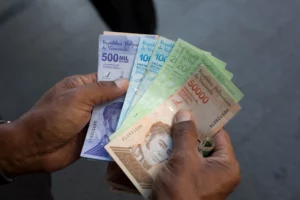Venezuela’s economy is in serious trouble. Official data shows inflation has climbed to over 170% this year, and the local currency, the bolívar, keeps losing value fast.
In just six months, the bolívar has lost more than half its worth against the US dollar. The Colombian peso has also become much stronger, rising over 130% compared to the bolívar since January.
Most people and businesses still use bolívares for daily purchases, but that is changing. Now, about 10% of transactions happen in US dollars, and 2% in Colombian pesos—especially near the Colombian border.
These numbers come from Venezuela’s own Central Bank and independent finance experts. Prices for food and basic goods are rising quickly. A typical month’s groceries now cost more than $400, while the minimum wage is stuck below $2.
This huge gap means many families can’t afford essentials unless they use dollars or pesos instead of bolívares. Businesses face big problems, too. Importing goods costs more every week.

The difference between the official and street exchange rates makes it hard to set prices and plan ahead. Many companies use the black-market rate for deals, because it matches what’s really happening in the economy.
The government has tried to control the situation by spending hundreds of millions of dollars to support the bolívar and by introducing new rules for businesses. But these steps have not stopped the currency’s slide or helped restore trust.
Oil sales, once the main source of dollars for Venezuela, have dropped because of falling prices and international sanctions. With fewer dollars coming in, the bolívar keeps losing ground.
In border towns, people use Colombian pesos for almost everything, from groceries to rent. Venezuelans now make tough choices every day. They look for ways to protect their money and buy what they need.
The rise of the dollar and peso shows how little confidence remains in the bolívar. Until Venezuela can fix its economic problems and offer clear, reliable policies, people will keep turning to foreign money just to get by.



